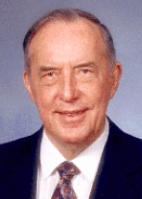
One distinctive and important result produced by the presence of the Holy Spirit in the church may be recognized by the active participation of all the members in the life, worship and service of the church. In the regular services of the great majority of Christian churches today, almost all the real initiative and activity are confined to just a few individuals. The congregation as a whole may take part in certain prearranged activities: singing hymns or repeating fixed prayers or responses. There may also be one or two smaller, specially trained groups, such as a choir or an orchestra. But apart from this, in the vast majority of congregations, all the real initiative and activity are left in the hands of one or two individuals while the rest of the congregation is expected to contribute little more than an occasional Amen.
However, if we examine with an open mind the life and worship of the early church as portrayed in the New Testament, we find that there was active participation by all the believers present in any service. This was brought about by the supernatural presence and power of the Holy Spirit, operating in and through the individual believers.
Gifts are Given to the Church
The first point we need to establish is that, according to the New Testament pattern, the supernatural gifts of the Holy Spirit are not given primarily to the individual believer. Rather, they are given—through the vessel of the individual believer—to the church or congregation as a whole. Therefore they cannot achieve their proper purpose unless they are freely manifested and exercised in the life of the congregation.
This is clearly brought out by the teaching of Paul in 1 Corinthians 12. In verses 7 through 11 of this chapter, Paul lists nine specific supernatural gifts of the Holy Spirit, ending with the words: “But one and the same Spirit works all these things, distributing to each one individually as He wills” (verse 11). This last phrase obviously indicates that these gifts are given in the first instance to individual believers. However, Paul does not end there.
In the next 16 verses of the same chapter (verses 12–27), Paul goes on to say that the Christian church is like one body with many members, and he likens each individual believer to a single member of one body, ending with the words: “Now you are the body of Christ, and members individually” (verse 27). Spiritual gifts are not intended primarily for the benefit of the individual but for the life and worship of the whole congregation.
This truth is clearly stated by Paul in the very next verse—that is, “And God has appointed these in the church: first apostles, second prophets, third teachers, after that miracles, then gifts of healings, helps, administrations, varieties of tongues” (verse 28).
Speaking here of various ministries and supernatural gifts of the Holy Spirit, Paul says that all of them have been appointed by God “in the church.” That is, they are intended not merely for private use by individual believers, but for public manifestation in the church—the congregation of God’s people as a whole.
The Lamp Stand
This same truth is strikingly brought out by a brief parable Jesus uses in the Sermon on the Mount:
“Nor do they light a lamp and put it under a basket, but on a lamp- stand, and it gives light to all who are in the house.” Matthew 5:15
The two main symbols used in this parable are the lamp and the lampstand. The symbol of the lampstand may be interpreted by reference to Revelation 1:20: “The seven lampstands which you saw are the seven churches.” Throughout the whole of Scripture, a lampstand (or candlestick) is used as a symbol of a church or a congregation.
The symbol of the lighted lamp or candle may be interpreted by reference to Proverbs 20:27: “The spirit of man is the lamp of the LORD.” Thus, the lighted lamp is a symbol of the spirit of the believer, made to burn and to shine by the fire of the indwelling Spirit of God. More simply, the lighted candle represents the believer baptized in the Holy Spirit and fire.
Going back to Matthew 5:15, Jesus says that the Spirit-baptized believer belongs by right in the candlestick— that is, in the church, the congregation of God’s people. A candle under a basket or covered up by an empty vessel is out of place and useless. Just as the lighted candle belongs in the candlestick, so the Spirit-baptized believer is under an obligation to take his rightful place in the congregation of God’s people. A believer who has received the baptism in the Holy Spirit but never makes public use of any spiritual gift is just like a candle under a basket.
We see then, from these Scriptures, that the baptism in the Holy Spirit and the supernatural manifestations of the Holy Spirit are intended to play an effective part in the public life and worship of the congregation as a whole. When the presence and power of the Holy Spirit are publicly manifested in this way through various believers, the result is that the whole life and worship of the congregation are completely transformed. The main responsibility for the ministry and conducting of the service are no longer borne by one or two individuals while the rest remain lazily passive. On the contrary, every member of the congregation begins to participate actively in the service, and the various members minister to each other, rather than one or two ministering to everyone else all the time.
This is the pattern indicated by Paul’s example of the body and its members, and it is confirmed by the words of the apostle Peter:
As each one has received a gift, minister it to one another, as good stewards of the manifold grace of God. If anyone speaks, let him speak as the oracles of God, if anyone ministers, let him do it with the ability which God supplies, that in all things God may be glorified through Jesus Christ, to whom belong the glory and the dominion forever and ever. Amen. 1 Peter 4:10–11
Peter here speaks of God’s grace being “manifold.” God’s grace is so rich, so many-sided, that a different aspect of that grace can be manifested through each individual member in the total worship and service of God’s people. God’s grace is so rich that every member of the church may receive a special manifestation of it and may thus have something to minister in turn to all the other members. The language Peter uses here includes every member of the church; no one need be left without a gift or a ministry. Peter says: “As each one has received a gift, minister it to one another.” And again, in the next verse: “If anyone speaks . . . if anyone ministers.” There is no indication here of a church with one or two “professional,” full-time ministers, while the remaining members are largely inactive.
Active Members
 This picture of the church with every member active is confirmed by the words of Paul:
This picture of the church with every member active is confirmed by the words of Paul:
For I say, through the grace given to me, to everyone who is among you, not to think of himself more highly than he ought to think, but to think soberly, as God has dealt to each one a measure of faith. For as we have many members in one body, but all the members do not have the same function, so we, being many, are one body in Christ, and individually members of one another. Having then gifts differing according to the grace that is given to us, let us use them: if prophecy, let us prophesy in proportion to our faith, or minis- try, let us use it in our minister- ing: he who teaches, in teaching; he who exhorts, in exhortation; he who gives, with liberality; he who leads, with diligence; he who shows mercy, with cheerfulness. Romans 12:3–8
In these verses Paul once again likens the Christian church to a body of which each individual believer is a member, and he lays great stress on the activity of each member. Paul teaches that God has allotted to each believer a special function, a special ministry. God has also appointed to each member a measure or a proportion of faith, sufficient to enable each particular member to fulfill successfully his allotted ministry. Thus, the New Testament picture of the church is that of a vigorous, active body, in which each individual member properly fulfills his or her special function. A church in which only one or two members had any active ministry would be, by New Testament standards, like a body in which, let’s say, the head, one hand, and one foot were strong and active, and all the rest of the body was paralyzed and useless.
In 1 Corinthians 12, Paul lays particular emphasis upon the supernatural ministry imparted by the Holy Spirit to every member of a New Testament church. He says: “But the manifestation of the Spirit is given to each one for the profit of all” (verse 7). And again, concerning the nine supernatural gifts of the Holy Spirit: “But one and the same Spirit works all these things, distributing each one individually as He wills” (verse 11).
These words make it plain that it is the express will of God for every member of the church to exercise spiritual gifts—the open, public, supernatural manifestations of the indwelling Spirit. If all believers do not in fact have these gifts in operation, it is not because God withholds them, but simply because such believers (through carelessness or unbelief) fail to press on into the fullness of God’s revealed will for His people.
Exercising the Gifts
In 1 Corinthians 14:5, Paul says: “I wish you all spoke with tongues, but even more that you prophesied.” Since Paul is here writing under the inspiration of the Holy Spirit, his words impart to the church the revealed will of God for all His believing people both to speak with tongues and to prophesy. If there are believers who do not enjoy the exercise of these gifts, it is not because God has withheld the gifts, but simply because those believers have not entered into the fullness of their inheritance in Christ. The Lord said to Joshua and to His people under the old covenant: “There remains very much land yet to be possessed” (Joshua 13:1). So it is also with God’s people under the new covenant today: There remains very much land yet to be possessed.
 In 1 Corinthians 14:13, Paul says also: “Therefore let him who speaks in a tongue pray that he may interpret.” Plainly, God’s Word does not tell us to pray for something which it is not God’s will for us to have. Therefore, we know that it is God’s will for anyone who speaks in tongues to also interpret that utterance. Since Paul has already said that it is God’s will for all to speak in tongues, it is therefore also God’s will for all to interpret.
In 1 Corinthians 14:13, Paul says also: “Therefore let him who speaks in a tongue pray that he may interpret.” Plainly, God’s Word does not tell us to pray for something which it is not God’s will for us to have. Therefore, we know that it is God’s will for anyone who speaks in tongues to also interpret that utterance. Since Paul has already said that it is God’s will for all to speak in tongues, it is therefore also God’s will for all to interpret.
Again, in 1 Corinthians 14:31, Paul says: “For you can all prophesy one by one, that all may learn and all may be encouraged.” Nothing could be plainer than this. It is within the revealed will of God for all the members of the church to exercise the spiritual gift of prophecy. On this general revelation of God’s will, Paul imposes only two limitations. Here in the verse just quoted, he says, “one by one.” That is, believers are to exercise this gift by turns, not more than one believer prophesying at any one time. The purpose of this is obvious, and is stated a few verses further on: to avoid confusion (verse 33).
The other limitation upon the exercise of the gift of prophecy is stated by Paul a little earlier, in verse 29: “Let two or three prophets speak, and let the others [the members] judge.” Paul here limits how many may exercise the gift of prophecy in any service to two or three. The purpose of this is that the whole service should not be monopolized by one particular form of spiritual manifestation. The exercise of prophecy has its place in the service, but it does not make up the whole service. The ministry of the Holy Spirit through God’s people is much more varied than that. Many other different forms of ministry are required to make up a complete service.
In this verse Paul also says clearly that the exercise of the gift of prophecy must be judged, or tested. He says: “Let the others judge.” The word others here, in Greek, is plural, meaning: “the rest of the members” or the other Spirit-baptized believers present who are capable of recognizing the genuine manifestation of the gift of prophecy. Even in this we see that Paul brings in all the members. He does not specify merely one professional minister who is to judge, but he makes the believers as a whole responsible to do this.
This is in line with what Paul says in 1 Thessalonians 5:19–21: “Do not quench the Spirit. Do not despise prophecies. Test all things; hold fast what is good.”
These three verses are addressed to Christian believers generally, and they must be taken closely together. It is wrong for believers to quench or reject the moving and manifestation of the Holy Spirit in their midst. It is also wrong for believers to adopt an attitude of criticism, contempt, or unbelief toward the manifestation of the gift of prophecy. On the other hand, when this gift is manifested, believers are to test it by the standards of Scripture and then accept or retain only that which is good—that which accords with the standards and patterns of Scripture.
We see, then, that Paul is careful to guard against anything that might be spurious or disorderly in the exercise or manifestation of spiritual gifts. However, with this one qualification, Paul repeatedly and emphatically states that all believers in the church can— and should—enjoy and exercise the open manifestation of spiritual gifts.
All Contribute
What is the result in a church when all its members freely and publicly exercise supernatural spiritual gifts in this way? In 1 Corinthians 14:26, Paul describes the kind of services that result. He says: “How is it then, brethren? Whenever you come together, each of you has a psalm, has a teaching, has a tongue, has a revelation, has an interpretation. Let all things be done for edification.”
Notice the phrase, “each of you has”—a psalm, a teaching, a tongue, a revelation, an interpretation.
Generally speaking, when Christians come together today, they come with the primary purpose of receiving, not of contributing. They come to get a blessing, to receive healing, to hear a preacher. But this was not the way of the New Testament church. There, the members came not primarily to receive, but to contribute. Paul mentions vari- ious possible forms of contribution.
A psalm would denote some form of musical contribution. This might be the product either of natural talent or of the supernatural enabling of the Holy Spirit.
A teaching would denote the ability to impart some truth from the teaching of God’s Word.
A tongue and an interpretation might be taken to cover generally the three gifts of supernatural utterance: tongues, interpretation and prophecy.
A revelation would cover any one of the three main revelatory gifts: a word of wisdom, a word of knowledge, and discerning of spirits.
In this way—mainly through the operation of the supernatural spiritual gifts—all the members had something of their own to contribute towards the total worship and service of the church. They are thus able to fulfill the injunction given by Peter: “As each one has received a gift, minister it to one another” (1 Peter 4:10). The ability of the members to minister effectively to one another was due mainly to the fact that they had received these supernatural spiritual gifts.
Had their ability to minister to each other depended merely on education or natural talent, many of them would have been just what we see in the majority of Christian churches today. The main burden of ministry would have fallen upon just a few of the members, and the rest of them would have remained largely passive or inactive, without any real opportunities for spiritual expression or development.
The only escape from this limitation and frustration is through the supernatural ministry of the Holy Spirit in the church, dividing spiritual gifts to all the members individually, according to His own will. In this way, the members are delivered from and lifted out of their own natural limitations into a spiritual realm where they can all operate freely and share together the burden of the total ministry of the church. In this way, all the members of the body of Christ can be made effectually active, instead of only a few members participating while the rest remain as spectators. Thus the body of Christ, as a whole, is able to fulfill its appointed function.
From “New Wine” magazine, November 1970.
Discuss: What are your thoughts? Has your church been practising this? Or how easy do you think it would be to cultivate this level of spiritual maturity in today’s church culture?

